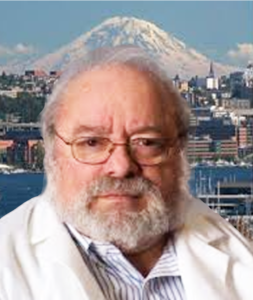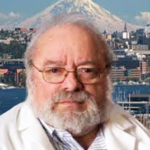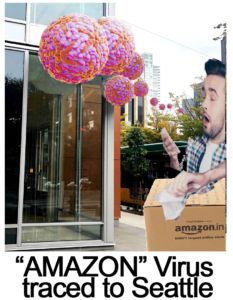How Massachusetts Built A Booming Biotech Ecosystem and Washington Failed

Silicon Valley, Seattle, Austin and New York often come to mind when you think of the nation’s tech capitals, but Greater Boston, along with the Bay Area and San Diego, stand out in Biotech. This article. with my comments is about Boston, biotech and why Seattle is a failure in that area.

Today, among all American cities, the city of Boston … receive(s) the most NIH funding for 24 consecutive years. That track record is significant because NIH is the largest public funding source of biomedical research worldwide.
(The UW and the Hutch combines do well but not ocmapred to the many institutions clusters in Boston and Cambridge. ) The Boston/Cambridge area benefits from what’s known in the biotech industry as clustering. There’s a high concentration of hospitals, leading universities and private companies in a relatively small area, which spurs collaboration and innovation. Clustering is particularly evident in Cambridge’s Kendall Square.

Cambridge’s Kendall Square is what might have been imagined for Seattle’s SLU. The tract is about a square mile ..about the size of SLU but located adjacent to MIT, a short ride by public transportation from Harvard Ynoversity, three Boston medical schools and Boston’s prestigious research hospitals.
Kendall Square, …. which has been labeled “the most innovative square mile on the planet,” has 25 biotech and life sciences companies and research institutions, including Amgen, Novartis Institute for Biomedical Research and Pfizer. (The square also includes) several institutes that shot off from Harvard or MIT and now lead the world. These include the Whitehead, a leader in developmental biology and animal genetics, a neurobiology instute founded by the borthers Koch, the Broad Institute seen by many as the center of modern genetics. The Broad and the Whitehead .. and many others .. were all founded by collaborations between private donors and outstanding scientists with roots in the Boston academic research centers.

bbb
The contrast with SLU is depressing. There is one major drug comany, Nova Nordsk, represented by a small facility.
I do not want to underplay SLU and its huge Amazon presence. But, Amazoin is one tnenat and I would suggest that SLU could be a lot more than Amazon’s HQ. As t is, SLU is not much more than the publically funded extention of the UW campus, a few small institutes, and now an increasing presence of the research arm of Children’s hospital. The other centers that are most visible to the public are a mix biology research instututes created by Paul Allen before he died . Again sadly, but all too typical of Seattle academia, the Allen insitutes have very limitted interactions with the UW.
Although not itself in SLY, the Hutch is really the big player .. not only for its own impressive research but for startups and spin offs inluding adaptive biotechnologies .. a collaboration that brings Microsoft into one of the hottest areas of modern biology.
 The issue of private donors is telling. Massachusetts (18) and Washington (14) have about the same numbers of potential billionaire donors. Moreover, the bulk of the megawealthy in Seattle are from tech, including the two richest ones in the world .. Bezos and Gates. Yet, gifts to world-class biology centers comparable to the Broad, simply do not exist in Seattle.
The issue of private donors is telling. Massachusetts (18) and Washington (14) have about the same numbers of potential billionaire donors. Moreover, the bulk of the megawealthy in Seattle are from tech, including the two richest ones in the world .. Bezos and Gates. Yet, gifts to world-class biology centers comparable to the Broad, simply do not exist in Seattle.

“What makes Boston different is that there’s this incredible stew that’s highly concentrated within 25 miles of downtown,” Dr. RJ Tesi, who moved from the San Francisco Bay Area to Boston in 2015 and is the CEO and CMO of INmune Bio, a company that develops therapies for cancer and Alzheimer’s disease.
(Since Cambridge approved DNA research, the government and biotech management have supported biotech in other ways. ) MassBio Edge, a purchasing consortium, pools the buying power of its member companies to purchase goods and services, such as lab supplies, office supplies, bulk gas and compress gas, that the state’s biotech and life sciences companies need. ….. The state also has 31 biotech and life sciences incubators. The Massachusetts Life Sciences Center (MLSC), an economic development and investment agency, has invested more than $700 million in the industry over the last 12 years via grants, loans, tax credits and workforce training and development programs. One of MLSC’s marquee programs is its Seed Fund, which invests up to $250,000 in convertible notes in emerging life sciences companies. Much of MLSC’s investment is the result of state government efforts. In 2008, Massachusetts launched an initiative to invest $1 billion over 10 years in the life sciences sector. As of June 2018, the state had invested or committed around $650 million. Last year, Governor Charlie Baker renewed the initiative and signed an act committing up to $623 million in bonds and tax credits over five years to drive education, research and development and workforce training in the life sciences industry.
 The closest thing we have in WA state has been the Life Sciences Discover Fund based on the tobacco settlement. Aside from the fact that this fund was never very big and aside from raids on the fund by the state government, the grant process was very politicized .. trying to spread the few dollars across a state where, to be blunt, there really is not much expertise outside of institutions in Seattle. To my knowledge none of those “investments” have led to any major institutional developments.
The closest thing we have in WA state has been the Life Sciences Discover Fund based on the tobacco settlement. Aside from the fact that this fund was never very big and aside from raids on the fund by the state government, the grant process was very politicized .. trying to spread the few dollars across a state where, to be blunt, there really is not much expertise outside of institutions in Seattle. To my knowledge none of those “investments” have led to any major institutional developments.

Putting talent at the center
Though clustering and collaboration with government have helped the state’s biotech industry grow, most business leaders say what drives the industry is one of Massachusetts’ greatest natural resources — talent.
Massachusett’s high density of colleges and universities creates an enviable talent pipeline, one that remains strong even as low unemployment creates more competition for talent.
 are more than 430 biotech companies. Many of them are located in Boston and Cambridge, two cities that form the state’s biotech core. In 2018, Massachusetts biopharma companies surpassed more than $4.8 billion in venture capital investment, up from $900 million in 2012, according to Robert Coughlin, CEO of the Massachusetts Biotechnology Council (MassBio), an industry trade group with more than 1,200 members that span biotech and life sciences companies, research institutions and hospitals. Today, there are more than 113,000 biopharma and biotech research and development jobs and more than 30 million square feet of lab space throughout (Massachusetts).
are more than 430 biotech companies. Many of them are located in Boston and Cambridge, two cities that form the state’s biotech core. In 2018, Massachusetts biopharma companies surpassed more than $4.8 billion in venture capital investment, up from $900 million in 2012, according to Robert Coughlin, CEO of the Massachusetts Biotechnology Council (MassBio), an industry trade group with more than 1,200 members that span biotech and life sciences companies, research institutions and hospitals. Today, there are more than 113,000 biopharma and biotech research and development jobs and more than 30 million square feet of lab space throughout (Massachusetts).
You pasted your picture in here eight times. Is it coincidental that biotech took off in Boston and fizzled in Seattle when you moved from Boston to Seattle?
Lessee .. hmmm this seems to be more ohso anonymous email from Bill Quick. This troll lives in South Carolina and is my brother in law. He is a sometimes violent guy who, among other things has been part of the effort to steal and destroy my father’s heritage from Buchenwald.. A few years ago my site was hacked and I was able to trace this to an address close to Bill’s home in South Carolina. Since he and my sister are the only folks I know there I reported my suspicions to the SC state police. They told me they had limited resources but would pay Bill a visit. After that, I started getting these strange anonymous troll posts. Like this one, they trace to places ty[ical of any9ne using a VPN to hide his identity. For a long time the troll pretended to be a famous black jazz singer. I contacted her and that stopped too.
He is a sick man.
So FWI worth, the UW was among the top medical schools in the world when I chose to come here and my program added to that success. I am proud of that era here.